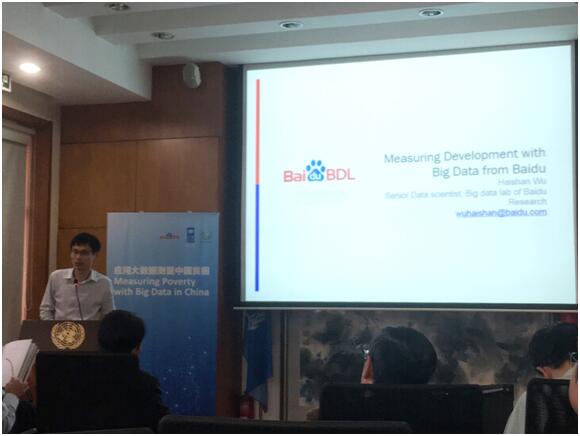The potential of big data to measure poverty in China: UNDP report
chinagate.cn by Lindsay Liu, October 18, 2016 Adjust font size:

Dr. Wu Haishan, Senior Data Scientist for the Baidu Big Data Lab [Photo by Lindsay Liu / chinagate.cn]
"Baidu Big Data Lab, in collaboration with UNDP, conducted the first multi-dimensional analysis of poverty through Big Data in the hope that it will assist governments with decision-making," remarked Dr. Wu Haishan, Senior Data Scientist for the Baidu Big Data Lab.
The Chinese government has committed to ending extreme poverty by the year 2020. This ambitious goal will require that resources be directed to the areas most in need to target the root causes of poverty.
"This new method could help us to analyze poverty in an innovative way. We look forward to teaming up with UNDP to explore effective ways to measuring poverty via big data," said Li Hongyan, Executive Chairman of the China Huasheng Green Industry Foundation.
"Big data provides an alternative tool for tackling development challenges, which however, does not go without constraints. The real-time and dynamic nature of data inevitably leads to the potential margin of error. This report touches on some of the weaknesses of using big data but hopes to illustrate that despite its limitations it serves to complement the traditional household surveys that feed the national database," added Haverman.
It is the first time UNDP has applied big data to its work in development, and there are many possibilities to learn and improve how to harness its potential in the future. Further research is already in the works to consider other dimensions such as health, education, public services and transportation with the potential for in-depth looks at specific provinces or counties.